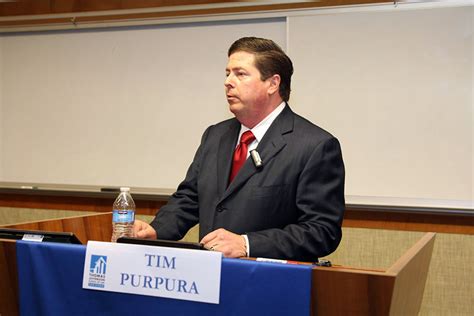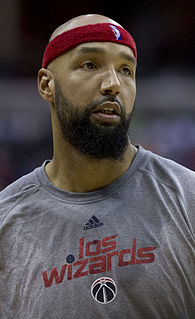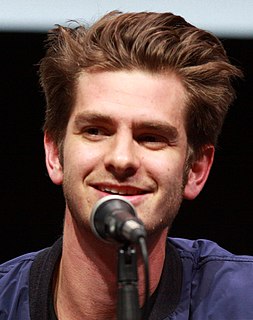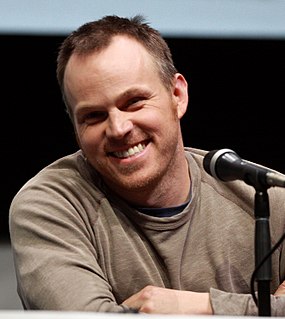A Quote by Matthew James Thomas
Any young man coming of age has a lot to go through. Peter Parker certainly has a lot of responsibility, and without doubt, so does Pippin - his role, his life, and how he is going to perform it. It's all about choices and how we make them.
Related Quotes
There's so many mysteries related to how flies are able to make their way through the world. I'd certainly like to know a lot more about how their brain works. I'd certainly like to know a lot more about just how they're put together. I mean, these animals are basically, topologically, spheres. They don't have bones as we do, of course.
At any rate, that’s how I started running. Thirty three—that’s how old I was then. Still young enough, though no longer a young man. The age that Jesus Christ died. The age that Scott Fitzgerald started to go downhill. That age may be a kind of crossroads in life. That was the age when I began my life as a runner, and it was my belated, but real, starting point as a novelist.
Grown-ups love figures... When you tell them you've made a new friend they never ask you any questions about essential matters. They never say to you "What does his voice sound like? What games does he love best? Does he collect butterflies? " Instead they demand "How old is he? How much does he weigh? How much money does his father make? " Only from these figures do they think they have learned anything about him.
It also helps that what Dan Slott is doing with Peter Parker in the comics has elevated him to something else, so that Miles Morales at the moment is the more traditional Spider-Man figure in the universe: the high school student trying to balance high school and superheroics, and he can't catch a break. That was Peter's role, but it's not his role anymore, and it's Miles' role. That was given to me, and it's pretty cool.
People seem to think that my movies are so carefully coordinated and arranged - and in a lot of ways, they are - but every single time I make a movie, I feel that every director makes these choices. You make choices about your script, you make choices about your actors, and how you're going to stage it, and how you're going to shoot it, and what the costumes are going to be like, and in every single detail, you make that decision. And for me, what ends up happening is, I wind up surprised at the combination of all these ingredients. It never is anything like what I expected.
How does Parker’s body compare with yours ” Great. A pop quiz I thought recognizing his transition into lecture mode. “How does Parker’s body compare with mine Hmm.” I gave Parker a quick theatrical once-over and he smiled clearly catching on to my line of thought. “Nice legs and killer biceps. But I have better boobs. No question.
Many concerns now make part or the whole of their dividends from by-products that formerly went to waste. How do we, as individuals, utilize our principal by-product? Our principal by-product is, of course, our leisure time. Many years of observation forces the conclusion that a man's success or failure in life is determined as much by how he acts during his leisure as by how he acts during his work hours. Tell me how a young man spends his evenings and I will tell you how he is likely to spend the latter part of his life.
Man, no doubt, owes many other moral duties to his fellow men; such as to feed the hungry, clothe the naked, shelter the homeless, care for the sick, protect the defenseless, assist the weak, and enlighten the ignorant. But these are simply moral duties, of which each man must be his own judge, in each particular case, as to whether, and how, and how far, he can, or will perform them.
For me, 'The Social Network' isn't about Facebook. It certainly isn't about how people use it. It's about a flawed character and his pursuit of that grand idea that defines him and validates his life and how far he'll go to get it, and the repercussions that come as a result of that - what he gives up in the process.
Obviously making Peter Parker suddenly bisexual or gay wouldn't really make logical or dramatic sense. It was a hypothetical kind of question about the nature of these comic book characters and the nature of this particular character, and whether sexuality, race, any of those things makes any difference to the character of Peter Parker.
Give me a young man who has kept himself morally clean and has faithfully attended his church meetings. Give me a young man who has magnified his priesthood and has earned the Duty of God Award and is an Eagle Scout. Give me a young man who is a Seminary graduate and has a burning testimony of the Book of Mormon. Give me such a young man, and I will give you a young man who can perform miracles for the Lord in the mission field and throughout his life.
Nerds are running the world. Andrew Garfield made a movie [called “The Social Network”] about it. Nerds are no longer pariahs and knowing how to write computer code is longer a [mocked] quality. What was important in those early comics was this notion that Peter Parker is an outsider and how we define that in a contemporary context. That, I think, was one of the challenges for us — getting Peter Parker’s outsider status to be current.




































